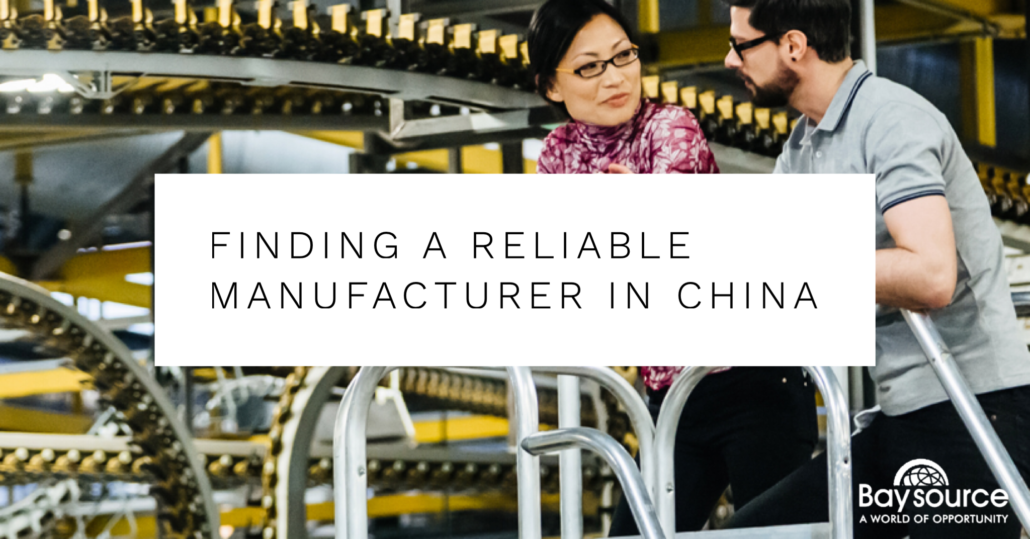Despite the ongoing threat of a trade war between the U.S. and China, some large manufacturers are placing their bets on China. Case in point: Boeing. The major airplane manufacturer opened its first completion plant in Zhoushan, China, paving the way for improved sales to the nation over time and against their existing rival in the industry, Airbus. John Bruns, President of Boeing China, said this in an article published by Reuters: “We have to keep our eye on the long game in China. Long term, I’m optimistic we will work our way through this,” he said.” (Source)
With that bit of wisdom in mind, it’s clear that manufacturing in China, tariff wars aside, is here to stay, so the next question becomes: how do you find a reliable manufacturer in a country that is over 7,000 miles and many cultural barriers removed from your location?
What you need to know before you start
You need to have a solid understanding of a few things before you even begin to look for a supplier in China:
- Know what you need in a manufacturing partner: size of their business, third party supplying vs. manufacturing in-house, in-house development or outsourced?
- Look online: you can review many manufacturers without leaving your office, scaling down the list with filters, based on what you have determined in the first point.
- Who are your competitors using? This might not be the easiest information to find but it’s very useful intelligence that can help you create a shortlist.
- Narrow down your list and write up an RFP (request for proposal). Send it out to the shortlist of manufacturers that you are considering and see which ones respond with the ability to meet your requirements.
- Talk to them: ultimately, the only way to be sure that you are comfortable working with an organization is to talk to them. Video chat is certainly an option, but ultimately, in person is better.
Going it alone or working with an outsourcing partner?
Understandably, many smaller organizations choose to go it alone, working with online sourcing opportunities like Alibaba or directly with manufacturers. If you are selling socks, that might acceptable. But for larger organizations who are looking to produce more complex products, with major investments in the process, the risks of going it alone are pretty high.
The key is to find a partner who can be the link between your organization and factories in China. While there is a cost to adding another layer into the supply chain, the cost associated with not having that connection could be so much higher, in terms of poor quality or out of spec output, regulatory issues, supply chain delays, shipping, freight and logistics issues, travel expenses and so on.
Here are a few key features to look for in an outsourcing partner:
- An outsourcing partner worth their salt will already have long term relationships built up with several high volume factories, which will put you in a better place to negotiate the terms of your manufacturing contract.
- They should also have a local team on the ground who can manage the cultural differences, as well as:
- Acceptance testing and QC processes,
- Protocols for issue management and dealing with rejects,
- Logistics and shipping management issues,
- Local regulatory controls,
- Knowledge of any suppliers identified and their quality control processes,
- Understanding of the financial stability of the manufacturer.
- With a local team, they should also be able to respond with speed and accuracy to any issues that might come up, saving you the time, effort, and cost of flying over yourself.
- Handling the entire process of outsourcing of the manufacturing from beginning to end allowing you to focus on your core business and sales efforts.
Pulling together all the information on various manufacturers and developing those relationships could take years to do independently. A qualified outsourcing partner can have you ready to begin manufacturing in a month.
There are many Chinese manufacturing companies that are very reputable and easy to work with but finding them in amongst those companies that might not be as strong is a job best left to a company like Baysource Global. With the groundwork already done and the relationships in place, they are in the perfect position to help you take your product idea to market, affordably and with a high quality standard.





Follow Us